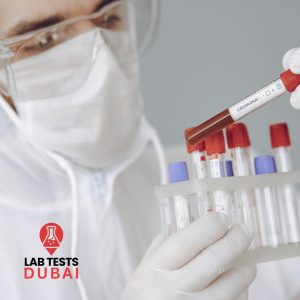Accurate Anti-Malaria Antibodies Test – Fast & Reliable Malaria Detection
485,00 د.إ
The Anti-Malaria Antibodies Test is a rapid, reliable diagnostic tool designed to detect malaria-specific antibodies in human blood, aiding in early and accurate malaria diagnosis.
Sample Type : Serum
Methodology : Immunochromatography
TAT : 10 Days
Description
Accurate Anti-Malaria Antibodies Test – Fast & Reliable Malaria Exposure Screening
The Anti-Malaria Antibodies Test from Lab Tests Dubai is a specialized blood test that detects antibodies your immune system produces in response to Plasmodium parasites—the cause of malaria, a life-threatening mosquito-borne disease.
While not used for diagnosing active infection, this test is essential for:
- Screening asymptomatic individuals with past exposure to malaria-endemic regions
- Evaluating delayed or atypical symptoms after travel
- Supporting diagnosis in recurrent or complicated malaria cases
- Assessing immune status in high-risk groups (e.g., aid workers, military personnel)
- Epidemiological studies and blood donor screening in endemic areas
Using immunochromatography or ELISA technology, this serum-based test detects IgG antibodiesagainst Plasmodium falciparum, P. vivax, and other species—indicating past exposure or infection.
Available with home blood collection, Lab Tests Dubai ensures accurate, private, and stress-free testing—so you can get answers after travel or unexplained illness.
Why You Need This Test
If you’ve traveled to Africa, South Asia, or South America and now have unexplained fever or fatigue, this test could reveal past malaria exposure—even if you didn’t feel sick at the time.
You need the Anti-Malaria Antibodies Test if:
- You’ve visited a malaria-endemic country (e.g., Nigeria, India, Brazil)
- You have unexplained fever, anemia, or liver abnormalities post-travel
- You’re donating blood or undergoing health screening
- You work in humanitarian aid, military, or tropical medicine
- You had negative rapid tests but persistent symptoms
- You’re being evaluated for recurrent fevers or chronic fatigue
This test helps:
- Confirm past exposure when microscopy is negative
- Support diagnosis in delayed P. vivax or P. ovale relapses
- Rule out malaria in chronic illness evaluations
- Guide further testing or treatment
Early screening = better understanding of travel-related health risks.
Symptoms That Indicate This Test
Consider the Anti-Malaria Antibodies Test if you experience:
✅ For Post-Travel Illness:
- Fever, chills, or night sweats (intermittent or persistent)
- Headache, muscle aches, fatigue
- Nausea, vomiting, or diarrhea
- Jaundice or dark urine (signs of hemolysis)
✅ For Delayed or Relapsing Malaria:
- Symptoms appearing weeks or months after return
- Recurrent fevers without clear cause
- History of incomplete or no prophylaxis
✅ For High-Risk Individuals:
- Travelers to high-transmission zones
- Expats or long-term residents in endemic areas
- Healthcare workers handling blood samples
These signs may point to malaria exposure—and this test helps start the diagnostic journey.
Natural Production: How Antibodies Reveal Malaria Exposure
When Plasmodium parasites enter your bloodstream via a mosquito bite:
- They infect liver cells, then red blood cells
- Your immune system responds by producing IgG antibodies against parasite antigens
- These antibodies can persist for months to years after infection
Key Facts:
- Antibodies do not indicate active infection—only past exposure
- Cannot distinguish between species without advanced testing
- May remain positive after successful treatment
- Useful for detecting silent or subclinical infections
Why This Test Matters:
- Helps identify asymptomatic carriers
- Supports diagnosis in relapsing malaria (P. vivax, P. ovale)
- Used in epidemiology and surveillance
Note: For acute malaria diagnosis, use microscopy or antigen (RDT) testing—not antibody tests.
What Happens If Untreated? Risks of Ignoring Malaria
Ignoring malaria can lead to:
⚠️ Cerebral Malaria – coma, seizures, death (especially with P. falciparum)
⚠️ Severe Anemia – from massive red blood cell destruction
⚠️ Organ Failure – kidney, liver, lung involvement
⚠️ Relapsing Infections – from dormant liver stages (P. vivax, P. ovale)
⚠️ Chronic Fatigue & Weakness – post-malaria syndrome
The good news? Malaria is treatable with:
- Artemisinin-based combination therapies (ACTs)
- Primaquine (for radical cure of P. vivax)
- Prompt diagnosis and supportive care
Early testing = faster recovery and prevention of complications.
How to Prepare for the Test
To ensure accurate results:
✅ No fasting required
✅ Continue your regular medications—but inform your doctor
✅ Inform your doctor of:
- Travel destination, dates, and duration
- Use of malaria prophylaxis
- Onset and pattern of symptoms
- Previous malaria infections
A serum blood sample is collected via standard draw—available at our labs or via home collection.
Test Overview: Immunochromatography Method
Interpretation:
- Negative → No evidence of past exposure
- Positive → Likely past infection or exposure
- Equivocal → Repeat testing advised
Note: Not diagnostic for acute malaria. Always correlate with travel history, symptoms, and direct parasite detection.
Benefits of the Anti-Malaria Antibodies Test
🔹 Travel Risk Assessment
Know if you were exposed during high-risk trips.
🔹 Support for Delayed Diagnosis
Helps identify relapsing or past infections.
🔹 Peace of Mind
Rule out malaria in chronic or unexplained illness.
🔹 Epidemiological Insight
Useful for researchers and public health teams.
🔹 Blood Safety Screening
Identify carriers in donor pools.
If you’re worried about fever, fatigue, or illness after travel, the Anti-Malaria Antibodies Test gives you the answers you need in 10 days.





Reviews
There are no reviews yet.